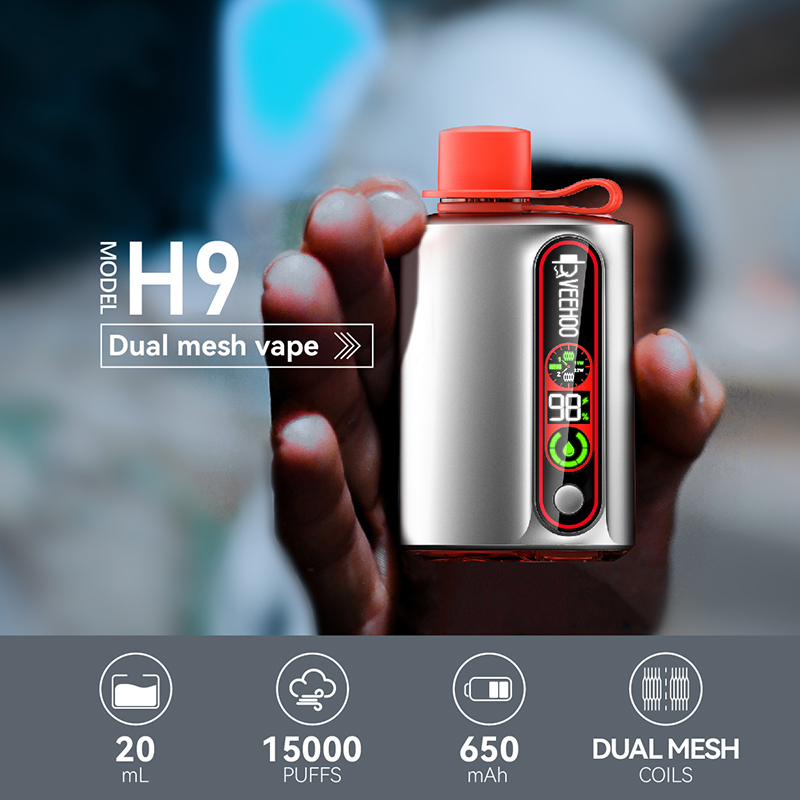In January, four British governments announced a significant policy adjustment, planning to ban disposable vapes and lower the legal age for purchasing tobacco products from 18 to 15 years old. The decision follows widespread support in a government-sponsored consultation, with nearly 70 per cent of respondents said to support the ban and other reforms.
The government has started to publish a draft statutory instrument and plans to enter into force on April 1, 2025. Scotland, Wales and Northern Ireland will also each have their own ban bills. However, the move sparked resentment from the vape industry, which renewed criticism of local authorities’ insufficient commitment to vape recycling, and prompted an angry response from the Local Authority Recycling Advisory Committee (Larac).
John Dunne, director general of the UK Vape Industry Association (UKVIA), said it was “contradictory” for the government to advocate a ban on disposable vapes without investing in their collection. He pointed out that a survey conducted by UKVIA found that 80% of councils in 20 major cities and London district councils had no plans to invest in vape products in the future.

According to the report, while 60 per cent of councils provide services for disposing of vape waste at municipal facilities or designated collection facilities, and 10 per cent place vape waste containers in public places, only one council has introduced a roadmap Side or home vape collection facilities.
UKVIA further states that even if disposable vapes are no longer available in retail stores, millions of rechargeable and refillable vapes will still be sold every year, and black market products are expected to increase.
The Environmental Protection (Disposable Electronic Cigarettes) (England) Regulations 2024 statutory instrument defines disposable vapes as any device that is not refillable or rechargeable. Anyone supplying, offering to supply or possessing any of these devices will be guilty of an offense and may be fined up to £200.
With the British government’s strict ban policy about to take effect, the vape industry is facing huge challenges. Among them, Veehoo vapes, as a well-known vape company, also needs to actively respond to this situation and find a way to survive.

First, Veehoo vapes can strengthen reliance on the legal market. Although the sale of disposable vapes will be banned, rechargeable and refillable vapes will remain legal. Veehoo vapes can further improve product quality and safety to attract more consumers to choose rechargeable and refillable vape products. At the same time, it is also an effective survival strategy to establish extensive cooperative relationships with other vape companies to jointly promote the healthy development of the industry.
Secondly, Veehoo vapes can increase investment in product recycling and environmental protection. Although local authorities have insufficient commitment to vape recycling, Veehoo vapes can actively participate in the construction and operation of recycling facilities and provide convenient waste disposal services to reduce negative impacts on the environment. This move not only helps improve the corporate image, but also meets the requirements of social responsibility and helps gain support from consumers and the government.
In addition, Veehoo vapes can actively expand into the international market. Although countries such as Australia have also implemented strict restrictions on vapes, there are still development opportunities for the vape market in other countries. Through an in-depth understanding of the regulations and market demands of various countries, Veehoo vapes can find international markets suitable for expansion and further expand the company’s influence and sales channels.

In addition, Veehoo vapes can also enhance competitiveness through innovation and diversification. In a ban environment, vape companies need to continuously launch new products and flavors to attract consumer interest. Veehoo vapes can strengthen the product R&D and design team, continuously improve and innovate products, and provide more diversified choices to meet the needs of different consumers.
Finally, Veehoo vapes can actively participate in cooperation with industry associations and governments. Through cooperation with industry associations, Veehoo vapes can speak for the industry and strive for more policy support and resource investment. At the same time, we maintain close communication and cooperation with the government and participate in the process of policy formulation and regulatory revision to ensure that the interests of vape companies are fully considered.
In short, under the strict ban, vape companies such as Veehoo vapes face survival challenges. However, by strengthening its reliance on the legal market, increasing investment in product recycling and environmental protection, expanding international markets, innovating and diversifying products, and cooperating with industry associations and governments, Veehoo vapes can find a way to survive and remain competitive. force. In the ever-changing policy environment, vape companies need to respond flexibly, actively seek opportunities, provide consumers with high-quality products and services, and at the same time actively fulfill social responsibilities to ensure the sustainable development of the industry.
Tags: What is black market vape,Is it illegal to buy black market goods,veehoo vape